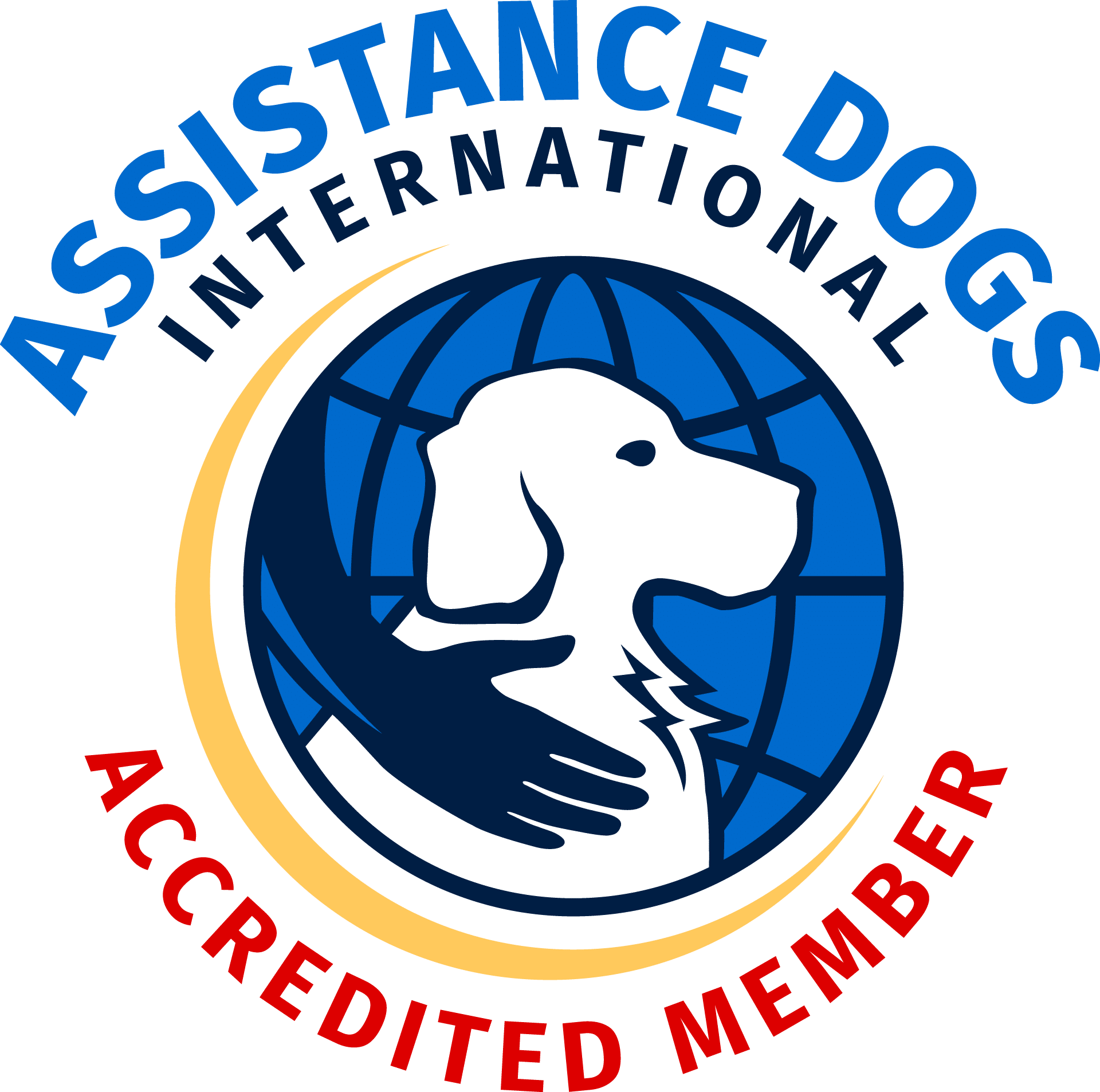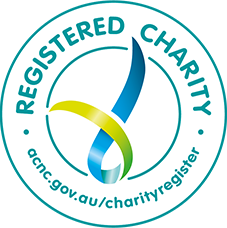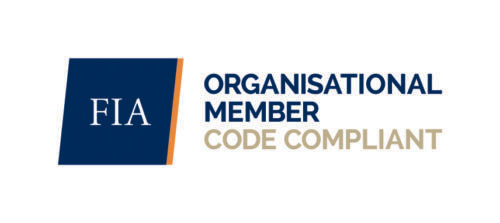Paediatric Occupational Therapy
Where is Assistance Dogs Australia’s paediatric occupational therapy service located?
Assistance Dogs Australia (ADA) Occupational Therapy is based at ADA’s Allied Health Centre at 1800 Princes Highway, Waterfall NSW.
Assistance Dogs Australia has two full-time paediatric occupational therapists: Claire Dickson and Lauren Bellamy.
Occupational therapy services are provided at the centre and in the local area within a 30-minute radius at family homes, day care centres, schools, and community environments.
Services can also be provided Australia-wide via Telehealth.
How to book
For more information or to refer for occupational therapy, please call us on (02) 9548 3355.
Meet the team
Claire Dickson – Bachelor of Arts, Master of Occupational Therapy, Medicare Provider: 5368785F, AHPRA registration: OCC0002089458

Lauren Bellamy – Bachelor of Health Science (Honours), Master of Occupational Therapy, Medicare Provider: 5239776A, AHPRA registration: OCC0002061174

Claire and Lauren can also provide occupational therapy sessions with a trained dog involved. Animal assisted therapy at Assistance Dogs Australia is provided in accordance with the Animal Assisted Intervention International Standards of Practice, Animal Therapies Ltd Code of Conduct and Code of Ethics
To schedule an appointment please call (02) 9548 3355.
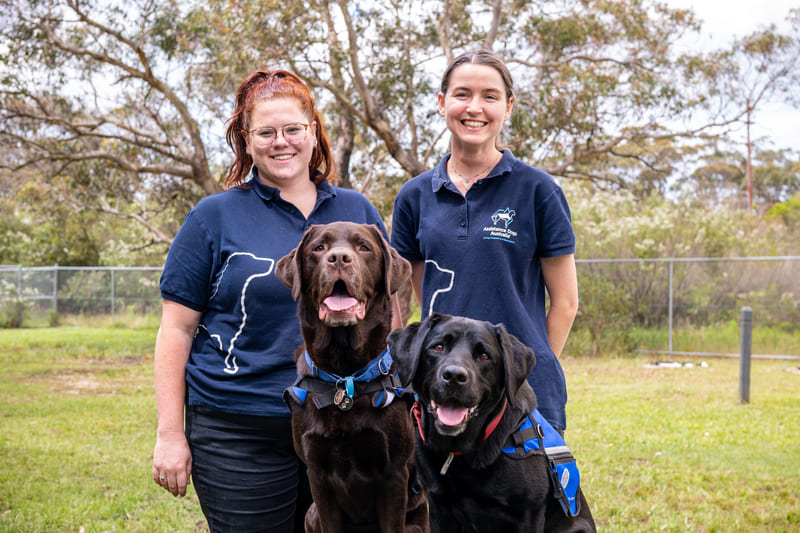
What is paediatric occupational therapy?
Paediatric occupational therapy is provided to children and youth under 18 years old who need additional support to engage in the daily tasks and activities they want and need to do.
Paediatric occupational therapy is family-focused and involves the therapist working alongside parents and caregivers to support a young person to engage in the activities they want and need to do.
Paediatric occupational therapists help children and young people with personal care skills, rest and sleep, academic and work skills, social emotional skills, community access, and engagement in meaningful leisure activities.
Why would a child need occupational therapy?
A child or young person may need occupational therapy if they have difficulty completing daily tasks, such as getting good quality sleep, completing personal care tasks like dressing, bathing, and grooming, or completing daily functional tasks like making snacks and meals, packing their school bag, and organising possessions. A child may need occupational therapy if they have trouble playing alone or with others or building friendships.
Other reasons youth may access occupational therapy include difficulties with self-regulation leading to decreased quality of life at home or decreased participation in school, social interaction, or community-based activities.
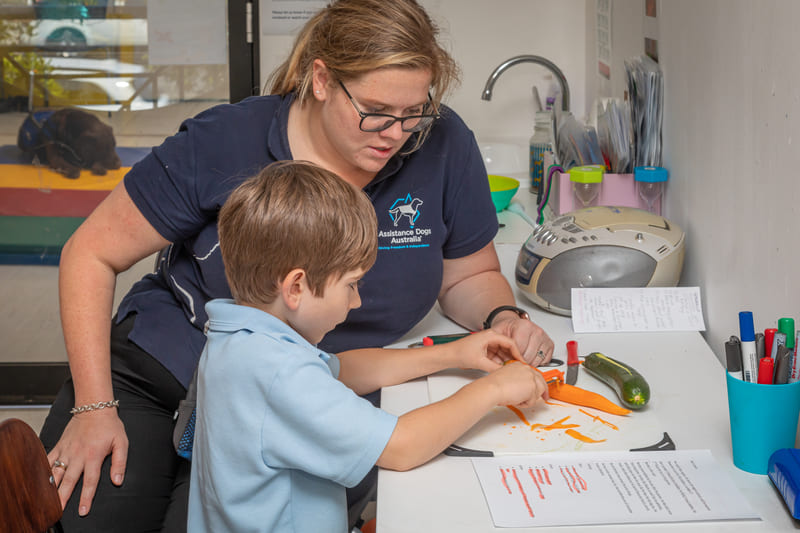
What does a paediatric occupational therapist do?
When working with children, young people, and families, occupational therapists first complete an initial assessment with caregiver and child which involves talking about the child and family experience from birth to present, and learning about the child’s strengths, interests and challenges.
The assessment involves the child or young person doing a range of activities with the occupational therapist. The types of activities depend on the child’s age and ability and are used to enable the occupational therapist to understand the child’s current strengths and challenges with movement and coordination, writing and tool use, pretend play, and self-regulation.
Following initial assessment, the occupational therapist will write a report outlining the child or young person’s strengths and underlying reasons for the person’s difficulties completing the tasks and activities they want and need to do.
The occupational therapist will then set goals in partnership with the young person and their caregiver and work toward the goals over a 10-week block of therapy sessions. After this, goals are reviewed and a decision is made together as to whether to continue sessions or discharge.
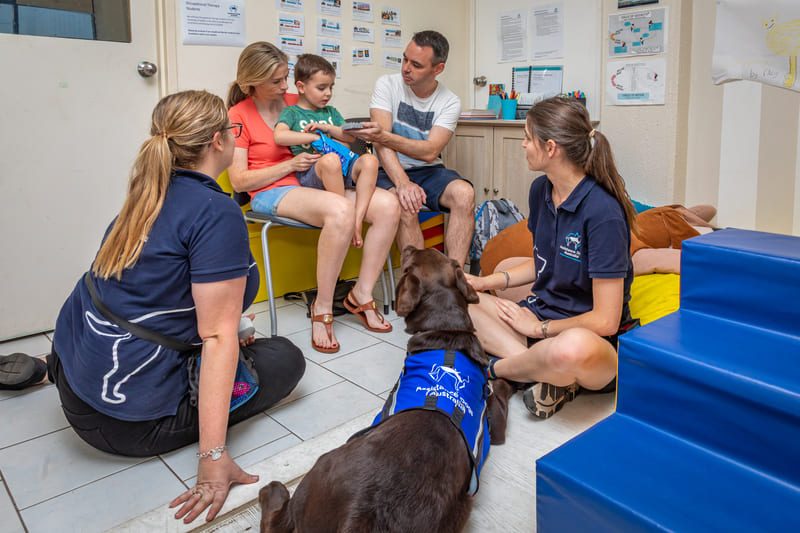
Assistance Dogs Australia’s paediatric occupational therapists do ongoing professional development specific to the populations with which they work in order to provide evidence-based practice.
How do trained dogs help in paediatric occupational therapy?
A trained therapy dog may be involved in the session if it will help the child or young person reach their goals.
A trained therapy dog may be involved in an occupational therapy session because they can:
● help the person feel safe and calm in the therapy environment
● help the person build trust and connection with the therapist
● motivate the person to attend therapy
● motivate the person to engage in tasks that are tricky in order to reach their occupational therapy goals.
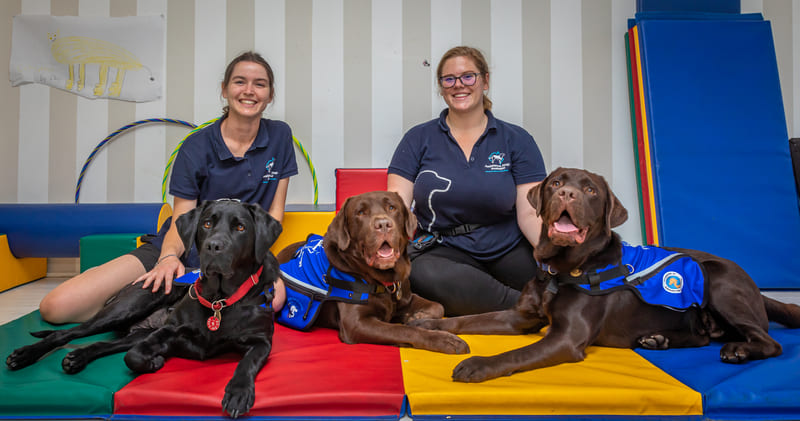
A therapy dog is not involved in the initial assessment and all clients must be screened prior to engaging with a therapy dog so the occupational therapist is aware of a person’s experience with animals and ability to engage safely with the therapy dog.
Assistance Dogs Australia has four trained therapy dogs: Asta (7 year old female black Labrador), Ike (5 year old male chocolate Labrador), Joy (5 year old female chocolate Labrador) and Mav (2 year old male black Labrador).
All four dogs have been trained since puppyhood to perform a range of behaviours and respond to approximately 40 verbal cues.
Therapy dogs are chosen because they enjoy working with people and are motivated to work in the therapy environment. Assistance Dogs Australia’s therapy dogs have a strong connection to occupational therapists Claire and Lauren, who are responsible for their safety and wellbeing.
The wellbeing, comfort and enjoyment of the trained therapy dog is an important part of any therapy session.
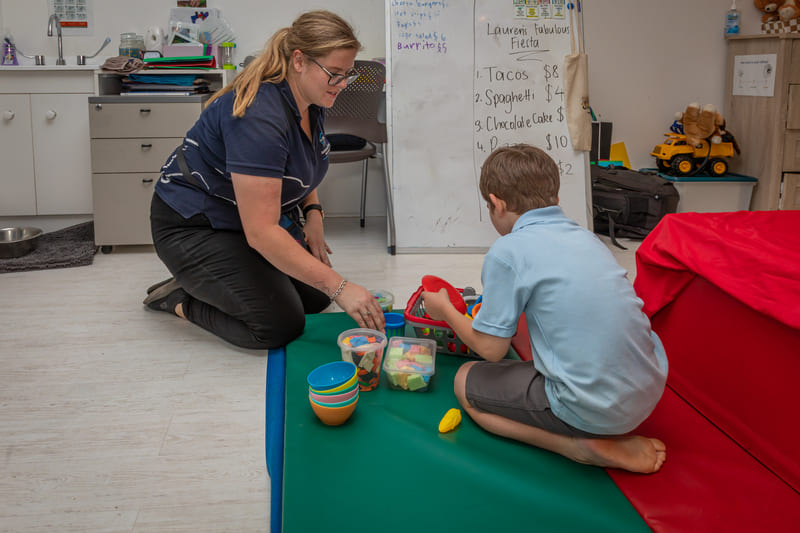
How can I access occupational therapy sessions at Assistance Dogs Australia?
Children and young people may be referred by a paediatrician for occupational therapy services following diagnosis. Children may be referred for services by day care or school, or in some cases parents may self-refer for services.
If your child needs occupational therapy sessions you can pay privately for services, if your child has a diagnosis, you can access an Enhanced Primary Care plan from your general practitioner which provides access to 5 subsidised allied health sessions annually including occupational therapy.
Assistance Dogs Australia is a National Disability Insurance Scheme (NDIS) Provider which means you can access occupational therapy sessions using your NDIS funding if you are self-managed, plan managed, or NDIA managed.
About us | Support us | Services | Terms & Conditions | Contact us
Copyright © 2023 Assistance Dogs Australia ABN: 90 074 746 160. Privacy Policy.
